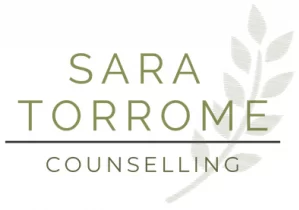Receiving a life-changing diagnosis can be one of the most difficult experiences a person can go through. It's a time when you're forced to confront your mortality and face the possibility that your life may never be the same again. Coping with the feelings of loss you feel with a life-changing illness or condition can be an emotional rollercoaster, filled with feelings of grief, sadness, anger, and fear. However, with the right support and coping strategies, it's possible to navigate this difficult time and move forward in a positive way.
Grief is a natural and expected response to the loss of something that was once important to you. It's normal to feel a sense of loss and grief when you receive a life-changing diagnosis. You may grieve for the life you once had, the things you used to be able to do, and the future that you had planned. You may feel like you're mourning the loss of your identity, your sense of self, and your place in the world.
It's important to acknowledge these feelings of loss and grief and allow yourself to experience them. It's okay to cry, to feel angry or sad, and to take time to process your emotions. You don't have to pretend that everything is okay, or that you're strong enough to handle it all on your own. It's essential to reach out to others for support, whether it's your family, friends, or a therapist who can provide emotional support and help you cope.
One of the most challenging aspects of coping with a life-changing illness or condition is the uncertainty about the future. You may feel like your life is out of your control, and that there's nothing you can do to change your situation. Try to focus on the things that you can control, such as your attitude, your self-care, and your support network. It's okay to take things one day at a time, and to set small, achievable goals that can help you feel like you're making progress.
Practicing self-care is essential when coping with a life-changing illness or condition. Too often we neglect our own needs when we’re dealing with grief and loss, but it's important to take care of yourself during this time. Take time to do things that you enjoy, whether it's reading a book, practising a hobby, going for a walk or spending time with loved ones. Engage in physical activities that you enjoy, such as yoga, walking, or swimming, to boost your mood and energy levels.
Finally, try to remember to practice gratitude during this time. It can be easy to focus on what you've lost, but it's important to take time each day to think about the things that you're grateful for, such as your family, friends, or even small things such as a beautiful sunset or a good cup of coffee. Focusing on the positive aspects of your life can help you feel more hopeful and optimistic about the future.
Coping with the loss of a life-changing illness or condition can be a challenging and emotional experience, filled with feelings of grief, sadness, and uncertainty. It's important to acknowledge these feelings and allow yourself to experience them, while also reaching out for support from others.
If you are struggling feelings of grief or loss due to an illness or condition, I am here to provide confidential, non-judgemental counselling in Beaconsfield and online. Get in touch to arrange an initial consultation at a time that suits you.
